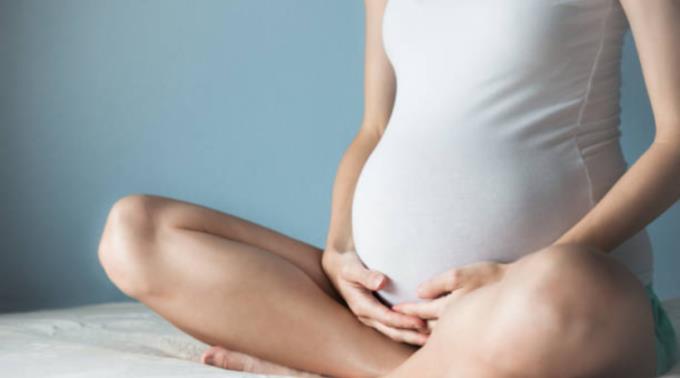The reclining uterus is not too dangerous, but if it is accompanied by a pelvic infection, your fertility or pregnancy can be problematic.
There are many things that can happen to your reproductive organs, which in turn affects your overall health. Many women are sometimes very aware of the unpleasant signs of polycystic ovary syndrome or endometriosis, but some conditions require more attention because it is not easy to distinguish, such as death. the bow leans back.
1. What is a retrograde uterus?
The backward uterus is the uterus (womb) that, instead of leaning forward and leaning against the bladder, is tilted back and against the rectum. About 25% of women suffer from this condition. Leaning of the uterus may be a natural phenomenon and requires no treatment if it does not cause pain or other symptoms.
2. Symptoms of the back uterus
Some women have a backward womb with no symptoms, so they do not know they have this situation. If you have the following symptoms, you may have a drooping uterus:
Pain in the vagina or lower back during sex
Pain during menstruation
Difficulty using tampons
Urinary urgency or a feeling of bladder strain
Urinary tract infections
Urinary incontinence is difficult
The lower abdomen swelled up.
3. The cause of the backward uterus
Some causes of a backward uterus include:
Natural phenomenon: Usually, the uterus leans forward as you mature, but sometimes this doesn't happen and the womb leans back.
Adhesion: Adhesion occurs when a scar tissue binds the surfaces of two organs together. Abdominal and pelvic surgery can cause the womb to stick with the rectum, leading to the uterus leaning back against the rectum.
Endometriosis: Endometriosis is the growth of endometriosis outside the uterus. These cells can lead to a backward uterus by attaching one part to other structures in the pelvis.
Fibroids: Small, non-cancerous tumors can make this reproductive part more prone to lean back.
Pregnancy: The womb is held in place by the ligaments. Pregnancy can cause these ligaments to stretch excessively and cause the uterus to lean backwards. In many cases, the uterus will return to its normal position after the baby is born, but sometimes this doesn't happen.
4. Unusual sexual intercourse
In most cases, the uterus is backward, the ovaries and fallopian tubes also follow. This makes these structures more prone to push when the "little boy" is inserted into the vagina during sexual intercourse and can cause pain for women, especially when the woman is in the upper position. In some cases, strong sex will damage and tear many of the ligaments around the uterus.
5. Does the uterus recline affect the ability to conceive?
Having your uterus reclined will not affect your ability to conceive. Usually the affected fertility is due to a number of accompanying conditions such as:
Endometrial optimism
Inflammatory diseases of the abdomen and pelvis
Fibroids.
Endometriosis and fibroids can be treated with laparoscopic surgery. When diagnosed early, abdominal and pelvic infections can be cured with antibiotics. If your fertility is affected, you can use artificial insemination to get pregnant.
6. How does a back uterus affect pregnancy?

Uterine in the reclining position usually does not affect pregnancy. This can put more pressure on your bladder during the first trimester, making it harder for you to urinate or urinate uncontrollably during pregnancy .
The uterus will enlarge and straighten when the first trimester ends, usually between 10 and 12 weeks of pregnancy. This helps the uterus pass through the pelvis and stop falling back. Occasionally, the uterus may not be able to lift as above, possibly because the organ is attached to the pelvis. With the passage of the first trimester and the uterus not leaning forward, the risk of miscarriage increases, but this rarely happens. When found early, this attached uterus can be treated early, minimizing or eliminating the risk of miscarriage.
See your doctor right away if you experience the following symptoms during pregnancy:
Urinary retention often
Stomach pain or pain near the rectum
Constipation
Urinary incontinence (enuresis)
During the third trimester, a back uterus may not be of much effect, and some people with a uterus in this position often experience back pain during labor.
7. Diagnose the backward uterus
This phenomenon of the uterus is diagnosed through vaginal examination and ultrasound. Occasionally, you may find your uterus lean back on your pap test . If you have symptoms such as pain during sex, your doctor may suspect you are having a backside uterus and check for common causes such as fibroids or endometriosis.
8. Treatment of the backward uterus
If your uterus is in a receding position and is causing many symptoms or unusual signs, your doctor may choose treatment options that include:
Hormone therapy: If the cause of your drooping uterus is due to endometriosis, your doctor will consider hormone therapy.
Pessary implant: A silicone or plastic device will be placed temporarily or permanently to help lift the uterus back to a reclining position. However, this implantation is associated with a risk of pelvic infection. On the other hand, pain during sex did not improve when putting the lift, even causing discomfort for the partner.
Laparoscopic surgery: This can help bring the uterus back to the position against the front of the bladder. The surgical method is quite simple and has a high success rate. In some cases, surgical removal of the hysterectomy may be considered if you are not expecting a pregnancy.
Although the receding uterus usually does not cause any dangerous symptoms during conception or pregnancy, if combined with causes such as endometriosis and abdominal and pelvic infections can affect your ability to your reproduction. So, please see an obstetrician and gynecologist immediately if in doubt!












